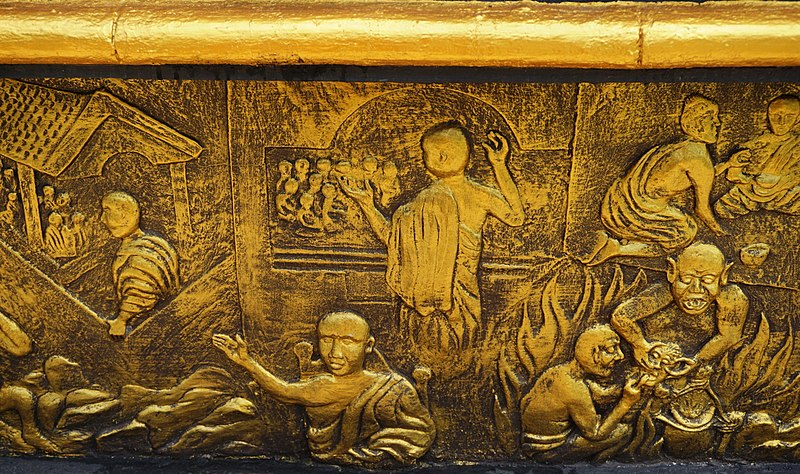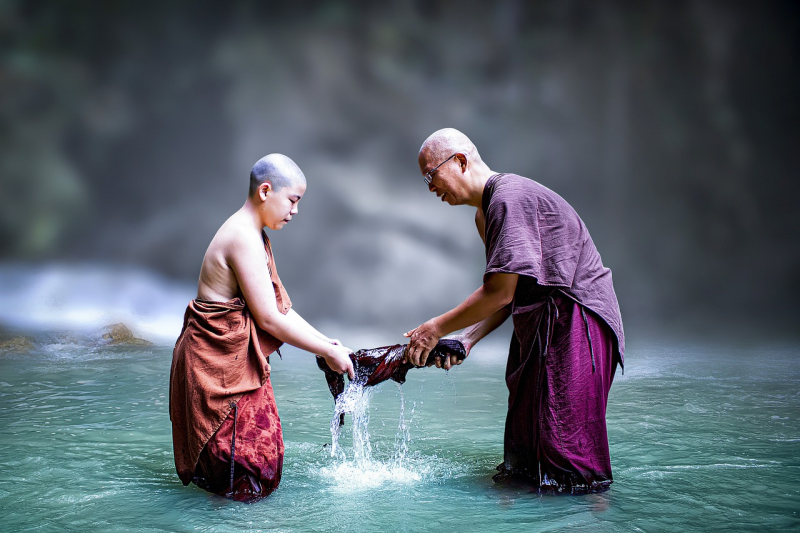The Role of Monastics
Monastics, encompassing monks and nuns, frequently assume a crucial role in extending spiritual guidance to individuals confronting death. Their teachings encompass impermanence, karma, and the path to liberation, facilitating an approach to the end characterized by comprehension and embracing.
Chanting scriptures and meditation, monastics oversee prevalent rituals throughout the dying process and funeral ceremonies. These practices are aimed at channeling positive energy, alleviating distress, and guiding the consciousness of the departed. Besides, Monastics often lead funeral ceremonies, guiding attendees through rituals that honor the deceased and provide an opportunity for reflection on the nature of life and death.
Monastics extend comfort and consolation to bereaved family members and friends, imparting a compassionate presence and offering guidance through the grief journey. In certain Buddhist traditions, the invitation of monastics to conduct ceremonies and rituals is deemed a virtuous deed, capable of amassing positive karma for both the departed and the living.
In essence, monastics are multifaceted in Buddhism's beliefs about death. They provide spiritual guidance, perform rituals, and extend solace to those approaching the end and those in mourning. Their presence and teachings aid individuals in navigating the profound journey of death while strengthening fundamental Buddhist tenets of impermanence and the quest for liberation.












